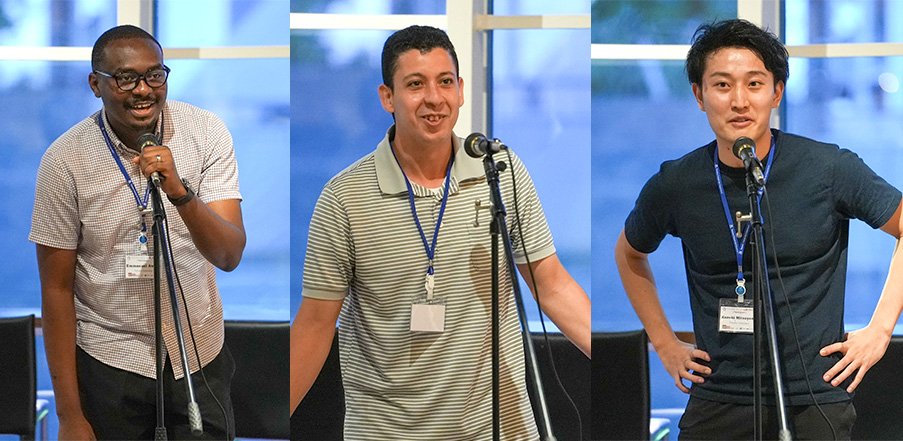Eight young researchers and entrepreneurs took part in this year's Falling Walls Lab Sendai, which was held at the TOKYO ELECTRON House of Creativity on Katahira Campus on September 21.
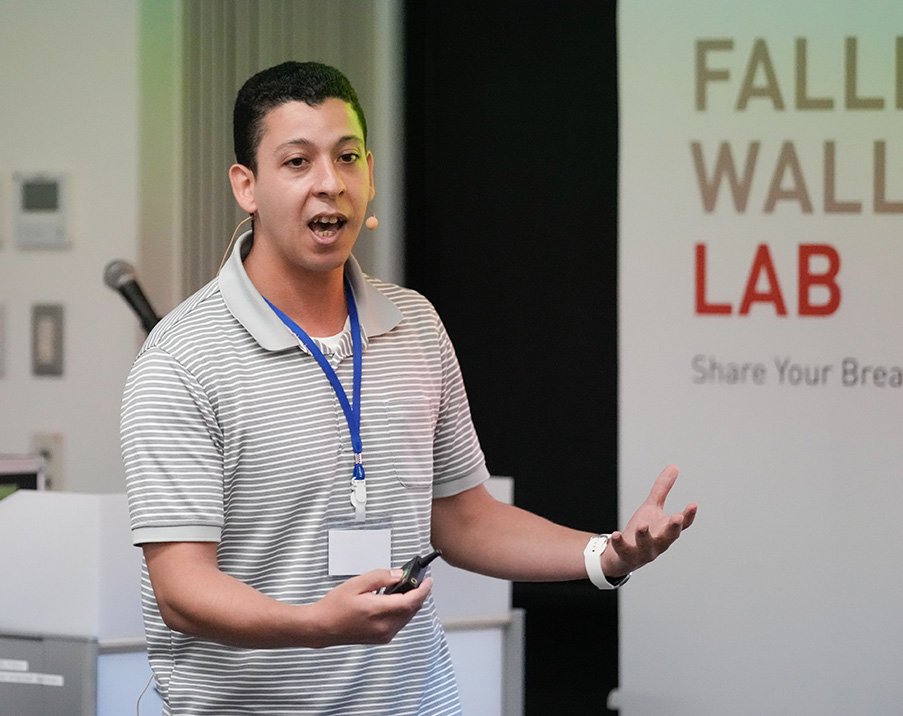
Mohamed Abd Elkodous from Toyohashi University of Technology, took first place with his topic "Breaking the Wall of Glassy Surfaces." He entertained the audience with a presentation styled like a TV commercial. In it, he explained that glassy surfaces on cars, buildings and modern devices are vulnerable to dust, rain and chemicals, which reduce their efficiency and performance.
His solution is a multifunctional glass surface coating product that he developed called NANO Surface-X. "It is a hydrophobic nanospray which is easily applicable to glassy surfaces, making them resistant to dust, rain and other chemicals for up to 6 months."
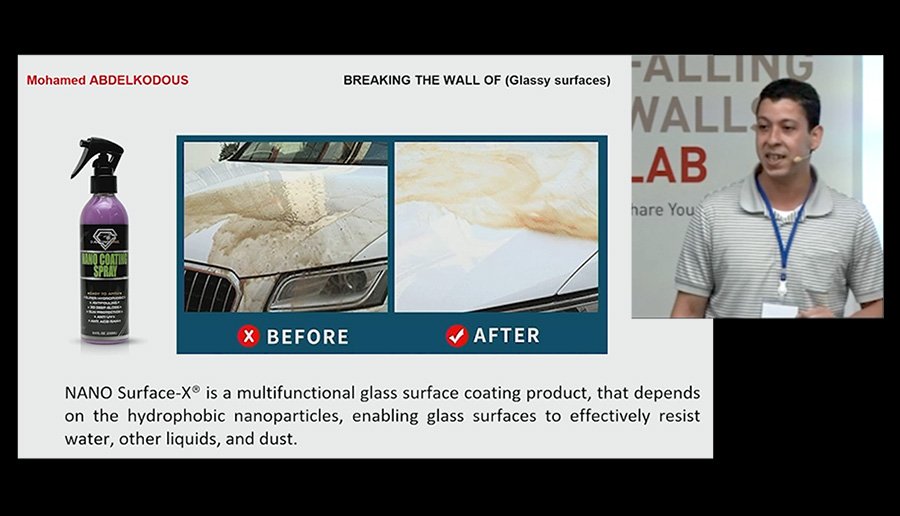
By drawing attention to the cost and potential dangers of regularly cleaning large and hard-to-reach surfaces, Elkodous described the product as having social and economic impact, declaring that "we are saving lives and money!"
It was a message that the judges clearly liked. "We were looking for a presentation that had some very practical applications that can advance the lives of many people, and you sold it well," said Judit Erika Magyar, a member of the judging panel. "We were convinced that this was going to be a financially viable invention. Your enthusiasm and the content of your presentation was something that we unanimously voted for."
Second and third place went to researchers from Tohoku University.
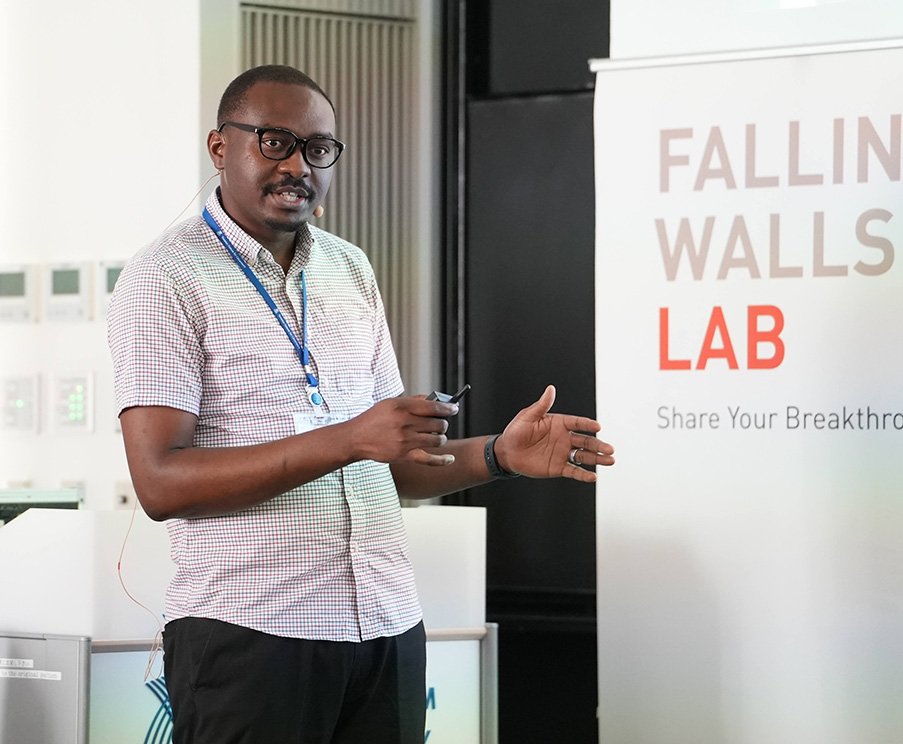
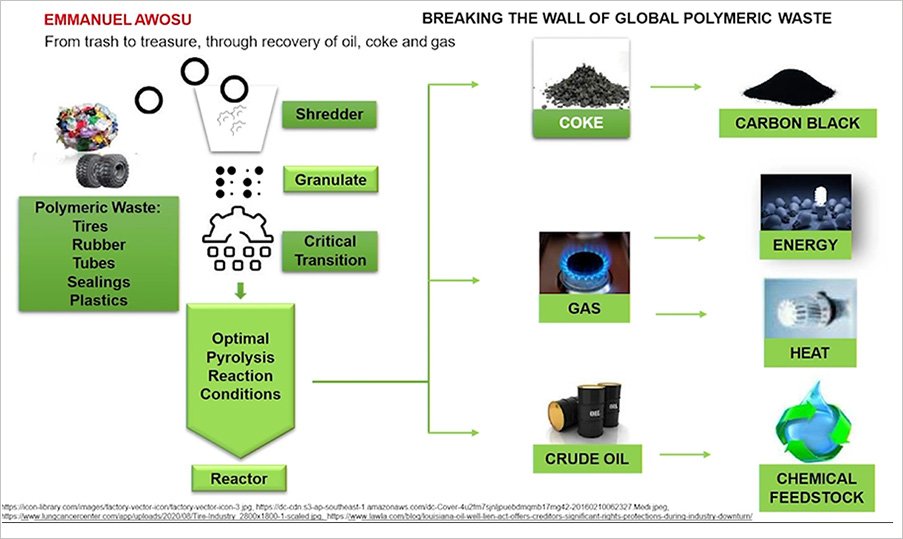
Emmanuel Awosu took second with his presentation "Breaking the Wall of Global Polymeric Waste," which proposed ways to "turn trash into treasures." He explained how traditional ways of recycling polymeric waste - such as open burning - creates global warming and other problems for the environment. He proposed using pyrolysis, a method of thermally decomposing polymeric waste in an inert atmosphere.
"My breakthrough approach is to first pass this polymeric waste through a transition stage that drastically reduces the molecular weight of these polymeric materials prior to the main pyrolysis stage," he said. "This would give us amazing control over the products that can be formed, such as coke, gas and crude oil."
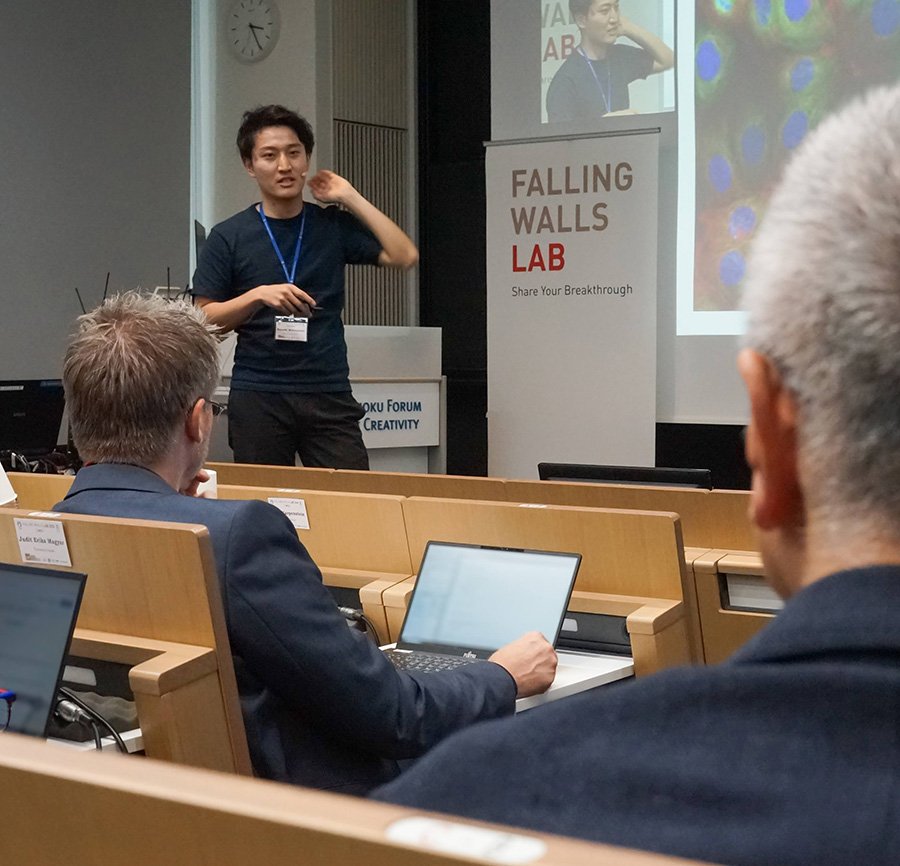
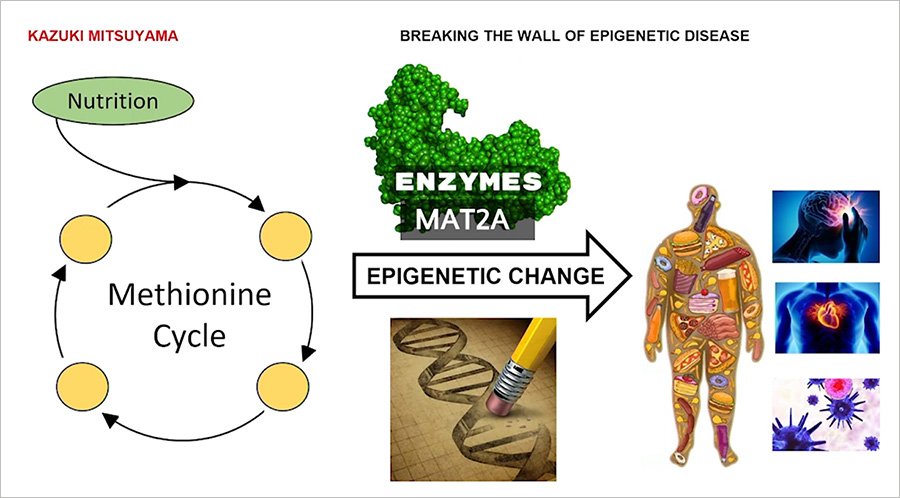
Third place went to Kazuki Mitsuyama, for "Breaking the Wall of Epigenetic Disease." In his presentation, he explained that epigenetics is a system that controls a person's gene functions. "Genes are not our destiny," he said, "they can be controlled through epigenetics."
Mitsuyama said that many diseases can be prevented if obesity can be controlled through epigenetic changes. He proposed focusing on a nutrition cycle, known as the methionine cycle. "To change the epigenetics, we need enzymes called MAT2A. If we control these enzymes with medicine, we may easily lose weight."
Elkodous and Awosu will join the winners of other international qualifiers for the main Falling Walls Lab Final in Berlin on November 7.
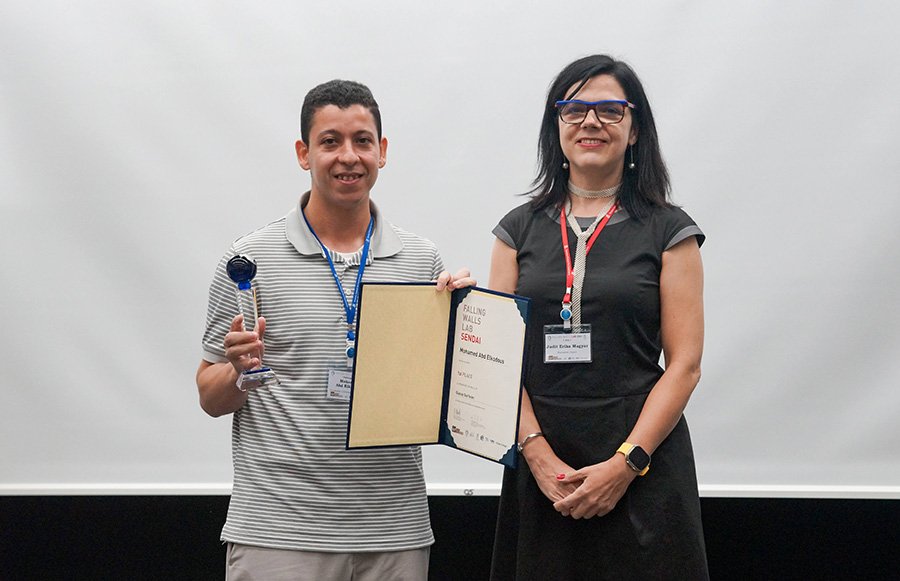
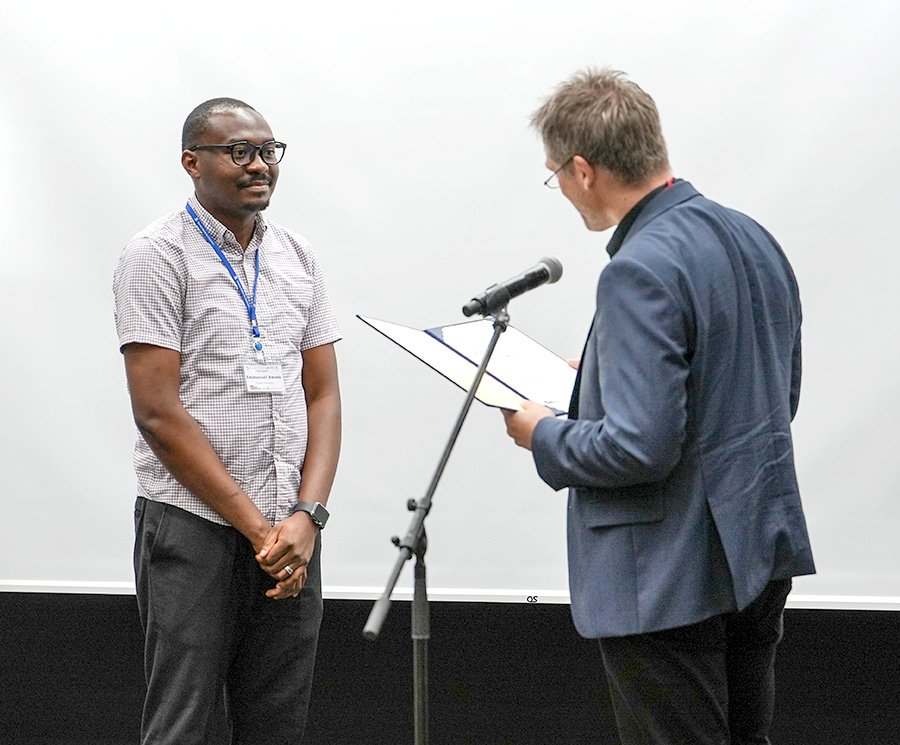
Falling Walls Lab is an international competition based in Berlin and started in 2011 to encourage innovative solutions to contemporary problems. Contestants pitch their initiatives in three minute presentations, and field questions from the jury. Contestants are judged on the "breakthrough factor" of their research, the social relevance of their work and the persuasiveness of the presentation.
Falling Walls Lab Sendai, as a regional qualifying event, is held every year and attracts contestants from all disciplines.
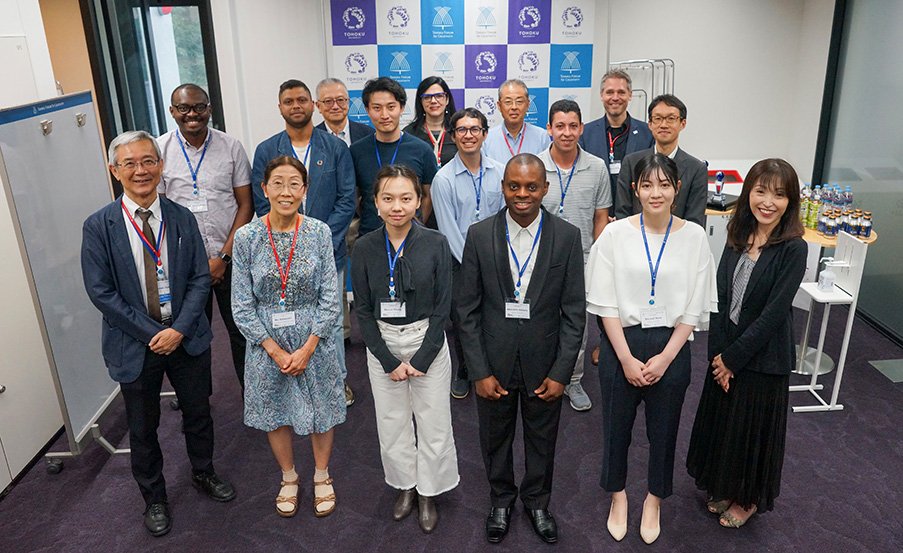
Contact:
Falling Walls Lab Sendai Administration
Tohoku University
Tel: +81 22 217-6091
Email: fwls grp.tohoku.ac.jp
grp.tohoku.ac.jp

